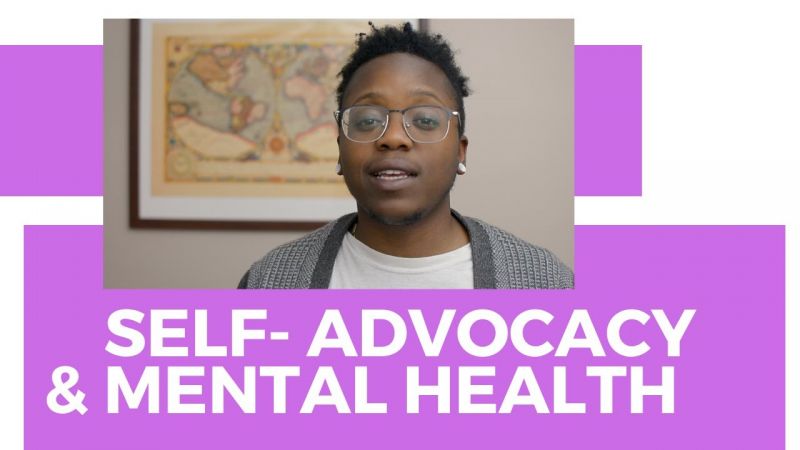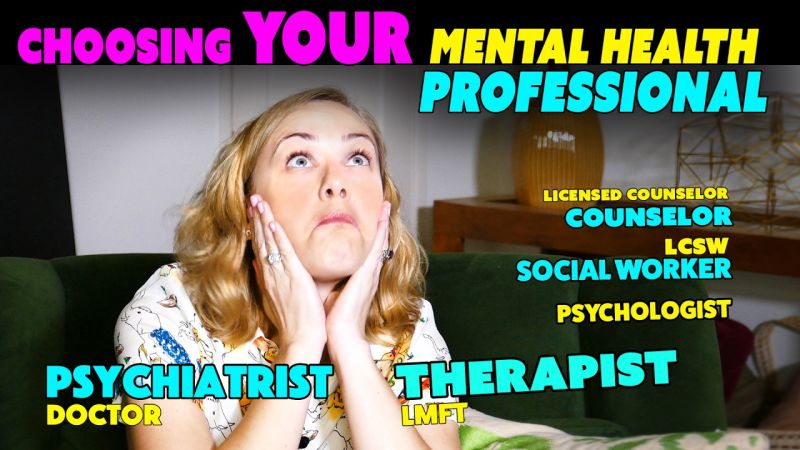Be Your Own Advocate: Finding the Mental Health Care Provider That's Best for You
Seeking help for your mental health is always a good decision. But that doesn’t mean the process will be easy.
Escrito por Rachel Unger

01 There are different kinds of mental health providers. They vary in style, methodologies and certifications.
02 Knowledge and preparation are key for self-advocacy. Make sure you’re reading up on your symptoms and treatment options prior to a consultation.
03 When it comes to choosing a provider, go with your gut. Trust is the foundation of every great therapeutic relationship.
Finding the right treatment and provider takes time and effort. You may not know what you’re looking for, who’s out there or what options are available. Not to mention, talking about yourself and your emotional needs can feel uncomfortable. Many people get discouraged along the way.
But no matter who you are, you can find proper support and learn to be a successful self-advocate along the way. Just because you aren’t naturally assertive doesn't mean you can’t get better at it. The more you practice asking for what you need — even in small ways — the easier it will become. When you are actively involved in your own treatment, you get more out of the experience.
Do Your Research
Knowledge is key. Use trustworthy resources like Made of Millions, National Alliance on Mental Illness and the National Institute of Mental Health to educate yourself about symptoms, causes, medications and treatments. When you’re looking at blogs, videos or message boards, always double check sources to be sure the information is scientifically accurate.
Once you have a better understanding of your options, you’ll feel more confident and empowered to ask the questions you want, and be involved in the making of your treatment plan.
Start by researching different types of therapy that treat your symptoms, and the kinds of clinicians that administer them. Fair warning: there’s a lot to consider.
Next, look into providers in your area. Check their credentials to make sure they are certified. If you know you want a certain type of treatment, check that it’s offered (e.g., Eye Movement Desensitization and Reprocessing, Cognitive Behavioral Therapy). Also, consider your preferences in regards to gender, age, race, language, cultural background or religion.
Referrals can come from a number of places, like your primary care doctor, family member, friend or another therapist. You can also look up community mental health centers in your area or search online for providers. Once you’ve found some options for people to talk to, narrow your list down to three to five promising leads. If the process still feels overwhelming, find a way to reward yourself after you reach out to your first contact. Every step forward, no matter how small, is worth celebrating.

Self Advocacy and Mental Health
How I advocate for myself as a black person with a mental health condition.
Trust Your Intuition
When you initially connect with a provider, ask if they offer a free evaluation prior to the first appointment. If so, take advantage of it. (Note: This is not always the case.) A five-minute phone screen can help you gauge if they’re a good fit.
You may need to talk to more than one person before finding one you really gel with. Remember, you’re the one in the hiring chair.
How to Prepare
Before your first meeting, write down some questions you’d like the provider to answer. If you’re unsure of what to ask, do some research into recommended prompts.
Spend time reflecting on what you want to share with them, what you want to know about their experience and perspective, and what you’re hoping to get out of therapy.
- Have they treated conditions like yours in the past?
- What’s their treatment approach and philosophy?
- What does a typical appointment with them look like?
- How does payment work?
- What’s their policy for missed appointments?
- Do they provide telehealth?
- Have they worked with conditions or symptoms like yours before?
Bring these questions with you to your meeting. It’s totally normal to have a sheet of paper, or phone notes, pulled up while chatting. It might also be helpful to journal ahead of time, and spend a few days tracking your mood, behavior, appetite, quality of sleep. Anything that will offer insight into your current emotional state.
Bring in Support
If you’ve worked with a provider in the past who dismissed your concerns, you know how frustrating it can be when your ideas aren’t taken seriously. If you want extra support during that first consultation, ask a close friend or family member to sit in on the session. They can also provide a secondhand perspective and ask important follow-up questions.
Keep in mind, if one of your reasons for going to therapy is an unhealthy relationship with controlling parents, partners or friends, you are under no obligation to invite them to this session. Only give people access if you feel it is something you want.

Psychiatrist, Therapist, Social Worker, LCSW, Psychologist... Who Should You See?
Therapist Kati Morton defines what a counselor, licensed professional counselor, therapist, social worker, psychologist, and psychiatrist are.
Establishing Trust
It’s crucial to have a positive, trusting relationship with your provider so you feel safe being honest and open.
A good therapist or doctor will pick up on unspoken cues, but that doesn’t mean they can read your mind. During your meeting, don’t be afraid to ask for an explanation if something seems unclear.
If you’re afraid of sharing, remember that these people do this for a living. Whatever you have to say is almost certainly not the most shocking thing they’ve ever heard. Same goes for emotions. Feel free to cry or get passionate. This is therapy, you’re supposed to let it all out.
That said, if you feel judged for the problems you’re bringing to them, that’s a red flag that you might need to work with someone else. Consider moving onto another option or addressing your concerns in a second session.
You may start working with someone and decide that you don’t click with them. That’s okay. They should be able to refer you to another provider, whether it’s a therapist, psychiatrist, substance abuse counselor or other specialist. Don’t give up.
Getting help for your mental health is a sign of strength. You deserve support on your own terms, and according to your own values, standards and needs.
Sobre el autor
Rachel Unger is a writer and editor based in Washington, D.C. She's passionate about raising mental health awareness and promoting fairness in the workplace.
Apoya nuestro trabajo
Nuestra misión es cambiar la manera en que el mundo percibe la salud mental.



















